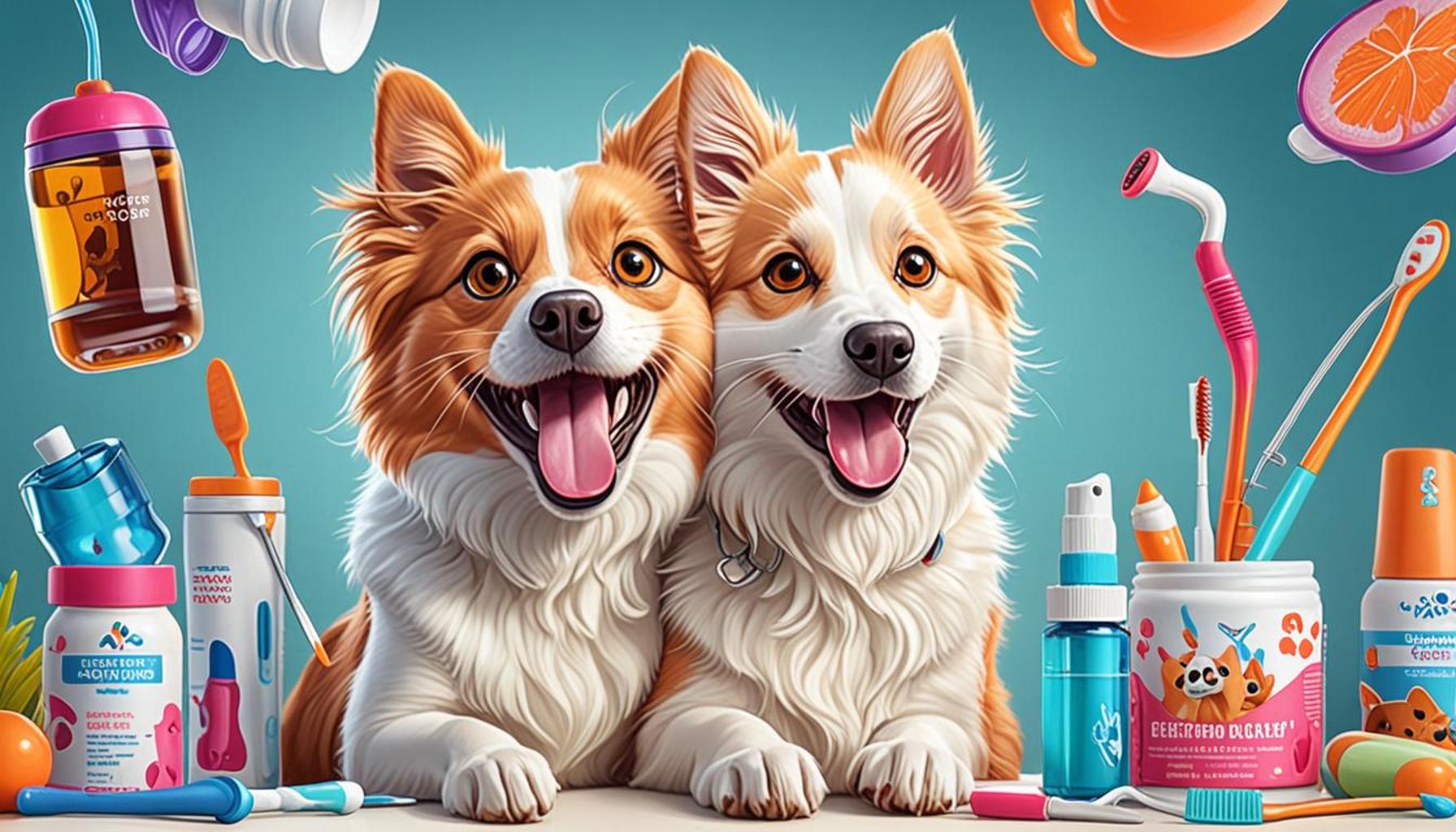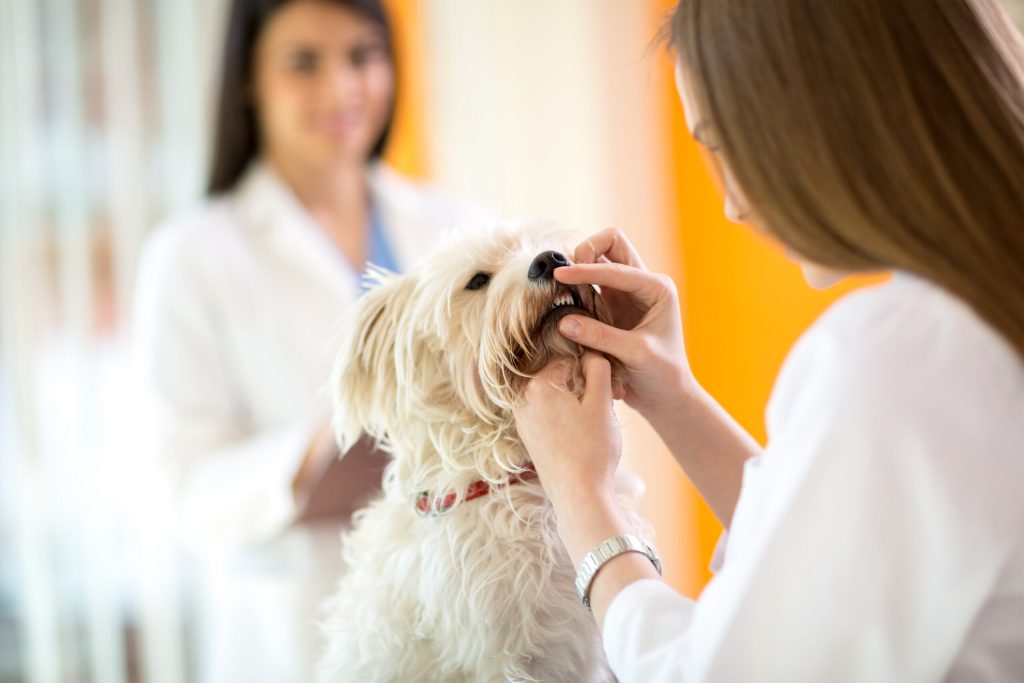Preventive Care for Pet Oral Health

The Hidden Dangers of Neglecting Oral Health in Pets
Maintaining good oral health is crucial not only for humans but also for our beloved pets. Just as individuals may face dental challenges, pets are not immune to issues that can have severe consequences if neglected. The importance of preventive care in oral hygiene cannot be overstated, as it significantly impacts a pet’s overall health and happiness.
Pet owners should be aware of some startling statistics regarding dental health in pets:
- Over 80% of dogs and 70% of cats show signs of dental disease by the age of three. This statistic showcases the prevalence of the issue.
- Conditions such as periodontal disease can result in pain, tooth loss, and severe infections, which can drastically diminish a pet’s quality of life.
- Moreover, oral health issues can adversely affect vital organs, including the heart, liver, and kidneys, leading to systemic health problems.
These troubling facts underscore the necessity for pet owners to adopt a proactive approach to their pets’ dental care. Implementing preventive measures can make a significant difference in their health. Here are some essential steps you should consider:
- Regular dental check-ups: Schedule annual veterinary exams that specifically assess oral health. A veterinarian can identify early signs of dental disease and initiate treatment before it escalates.
- Daily brushing: Aim to brush your pet’s teeth daily using toothpaste formulated for pets. A simple routine can help remove plaque and prevent tartar buildup, which are key contributors to dental issues.
- Treats and toys: Use dental chews and toys that are designed to promote oral health. These products can reduce plaque and tartar while making dental care fun for your furry friend.
By making pet oral health a priority, you are not only enhancing the appearance of their smile but are also significantly improving their quality of life. Healthy teeth and gums contribute to a happier, more energetic pet, allowing them to play and interact fully. As you consider these steps, stay tuned for upcoming discussions on innovative methods and practical tips to keep your furry friend’s teeth in impeccable condition.
Ultimately, pet dental health is an essential aspect of overall well-being and deserves your attention and care. The rewards of investing in your pet’s oral hygiene extend far beyond the dental office—they lead to a longer, healthier, and happier life for your four-legged companions.

DISCOVER MORE: Click here to learn about the impact of playtime on your pet’s well-being
Essential Steps for Maintaining Your Pet’s Oral Health
Taking a proactive approach to your pet’s dental care is the cornerstone of effective preventive care for pet oral health. Regular attention to this aspect of their well-being can prevent a myriad of issues from developing and ensure your furry friend enjoys a long, healthy life. Below are several essential steps pet owners can take to maintain optimal oral hygiene for their pets.
1. Understanding the Importance of Regular Veterinary Visits
One of the most effective preventive measures is scheduling regular veterinary dental check-ups. These visits are instrumental as veterinarians can perform comprehensive examinations that include checking for signs of dental disease, assessing gum health, and cleaning the teeth to remove plaque and tartar. According to the American Veterinary Dental College, an estimated 80% of dogs and 70% of cats show symptoms of dental disease by just three years of age, making these annual evaluations crucial. During these visits, your veterinarian may also suggest professional dental cleanings, especially if significant tartar buildup is observed.
2. Establishing a Daily Brushing Routine
Incorporating a daily brushing routine into your pet’s life is one of the simplest yet most effective ways to promote good oral health. Using pet-specific toothpaste, which comes in flavors that appeal to pets (like chicken or peanut butter), can make this process easier and more enjoyable. Aim to brush your pet’s teeth at least once a day, focusing on areas where plaque tends to accumulate, such as the back molars and along the gum line. This not only helps to drastically reduce plaque and tartar buildup but also improves your bond with your pet, turning dental care into a shared experience.
3. Utilizing Dental Treats and Chews
Dental treats and chews can play a dual role in your pet’s oral hygiene routine. Designed specifically to combat dental problems, these products can help reduce plaque, freshen breath, and even strengthen gums. Look for treats that carry the Veterinary Oral Health Council (VOHC) Seal of Acceptance, which indicates that they meet accepted standards for effectiveness in oral health. These treats are an excellent addition to a daily routine as they can satisfy your pet’s chewing instincts while contributing to their overall dental health.
4. Providing Fresh Water and a Balanced Diet
What you feed your pet can significantly influence their dental health. A balanced diet rich in nutrients not only supports overall health but also helps maintain strong teeth and gums. Consider choosing high-quality food designed for dental health, which can reduce plaque buildup through its formulation and texture. Additionally, ensure your pet has access to fresh water at all times, as proper hydration supports saliva production, which is essential for washing away food particles and neutralizing acids that lead to tooth decay.
By implementing these critical steps, pet owners can significantly enhance their pets’ oral health and overall quality of life. Prevention is always more effective than treatment, so start integrating these practices into your pet’s daily routine to help them achieve a happier and healthier smile.
Understanding the Importance of Preventive Care for Pet Oral Health
Preventive care for pet oral health is a critical aspect that cannot be overlooked by pet owners. Regular dental cleanings and comprehensive oral examinations will not only contribute to your pet’s overall well-being but also avert severe health issues down the road. Below is a table that outlines significant advantages of prioritizing preventive oral care for your furry companions.
| Advantage | Description |
|---|---|
| Prevention of Dental Disease | Regular check-ups help detect tartar buildup and periodontal disease early, preventing painful conditions. |
| Improved Overall Health | Healthy teeth and gums can lead to better heart health, as oral bacteria can affect other organs. |
By ensuring that your pets receive timely dental care, you take vital steps toward enhancing their quality of life. This proactive approach can save you from facing expensive dental treatments later on, as well as greatly reducing the chances of life-threatening diseases linked to oral health. Pet parents must invest knowledge and resources in preventive oral care to help their beloved companions thrive.
DISCOVER MORE: Click here to dive deeper into pet socialization through group training
Emphasizing the Role of Home Dental Care
While regular veterinary visits and professional cleanings are vital for pet oral health, home dental care plays an equally crucial role. As responsible pet owners, you have the power to make daily habits that significantly enhance your pet’s dental hygiene. Let’s explore further steps and strategies that can help make a remarkable difference.
5. Employing Dental Water Additives
Dental water additives offer an innovative and effortless way to enhance your pet’s oral health daily. These additives, which can be mixed with your pet’s drinking water, contain ingredients that help reduce plaque and tartar accumulation as well as control bad breath. Look for products containing cetylpyridinium chloride or sodium hexametaphosphate, which have shown to be effective in slowing down the progression of dental disease. Regular use of these additives can provide an additional layer of protection, especially for pets that are resistant to tooth brushing.
6. Monitoring and Recognizing Signs of Dental Issues
Pet owners should remain vigilant and aware of the signs indicating potential dental problems. Symptoms such as excessive drooling, bad breath, difficulty eating, or reluctance to chew can signify underlying dental issues. Furthermore, keep an eye out for bleeding gums or loose teeth. If any of these concerns arise, consult your veterinarian promptly to address the issue before it escalates. Early identification and intervention can prevent serious complications down the line.
7. Exploring Orthodontic Options
Just like humans, pets can have dental misalignments that affect their oral health. In some cases, orthodontic treatment may be necessary to ensure their teeth function properly. Two common conditions, malocclusion and crowded teeth, can lead to increased plaque buildup and gum disease if left untreated. Consult with your veterinarian or a veterinary dentist to learn more about the options available for correcting these issues, which could save your pet from future dental discomfort.
8. Recognizing the Importance of Breed-Specific Needs
Some dog and cat breeds are genetically predisposed to specific dental issues. For instance, brachycephalic breeds, like Bulldogs or Pugs, often suffer from overcrowded teeth due to their short skull structures. Meanwhile, small breeds, such as Chihuahuas, are more prone to periodontal disease as they age. In these cases, it becomes imperative to adapt your preventive care practices to your pet’s unique needs. Knowing and understanding these breed-specific tendencies will allow you to tailor your dental care routine more effectively, improving their chances of maintaining healthy teeth and gums.
9. Promoting Chewing and Natural Tooth Scrubbing
Lastly, introducing appropriate chew toys can contribute significantly to your pet’s dental health. Chewing helps to mechanically remove plaque from teeth, acting as a natural scrubber. Select durable toys made from safe materials designed for long-lasting use while promoting dental hygiene. Rubber toys, rawhide, and dental chews can aid in reducing tartar buildup while providing mental stimulation and exercise. However, always supervise your pet during playtime to ensure their safety and prevent swallowing large pieces that could pose a choking risk.
Incorporating these additional practices will help solidify your role in preventive care for your pet’s oral health. Importantly, nurturing good dental habits from a young age can foster a lifetime of healthier teeth and gums for your cherished companion.
DIVE DEEPER: Click here to learn more
Conclusion: The Vital Importance of Preventive Care for Pet Oral Health
In conclusion, preventive care for pet oral health is a multifaceted approach that demands the active participation of pet owners. By implementing a consistent home dental care routine alongside professional veterinary visits, you protect your furry friends from dental disease and other serious health issues. Regular practices such as brushing teeth, offering dental treats, and using water additives contribute significantly to maintaining oral hygiene and overall wellbeing.
Moreover, being vigilant about recognizing early signs of dental problems can lead to prompt interventions that drastically improve your pet’s quality of life. Education on breed-specific dental needs and the potential necessity for orthodontic treatments further empowers pet owners to make informed decisions tailored to their animal companions.
The benefits of preventive dental care extend beyond aesthetics; they encompass pain management, enhanced longevity, and happiness for your beloved pets. Therefore, make dental health a priority in your pet care regimen. Not only does it foster a robust bond with your furry family member, but it also ensures they enjoy a healthier and more fulfilling life. Embrace the challenges of pet oral health care with dedication, and your four-legged friends will thank you with wagging tails and content purrs for years to come.



